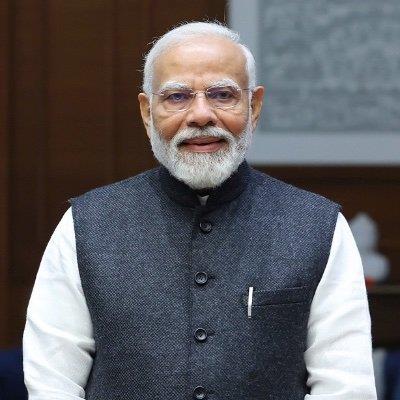
PM Modi's Economic Vision Gains Ground Amidst Changing Global Trade Policies
He asserted that the future of 140 crore Indians cannot be left to external forces, nor can the resolve for national development be based on foreign dependency.
He was addressing the 'Samudra se Samriddhi' event in Gujarat's Bhavnagar.
Earlier, in a statement from the ramparts of the Red Fort on Independence Day, the PM had shared this in his vision for the future.
"In a world of rising economic self-interest, the focus must be on strengthening India's capabilities, expanding opportunities, and empowering citizens. These reforms mark the beginning of an accelerated phase of governance transformation, ensuring India is more resilient, inclusive, and globally competitive," PM Modi said.
Indian entrepreneurs and politicians have supported the Prime Minister's vision, calling for a more self-reliant economic strategy to counter global pressures.
Recent publications from organisations like UN Conference on Trade and Development (UNCTAD), the World Trade Organisation (WTO), and the International Monetary Fund (IMF) have also highlighted the global trend toward protectionism and its disruptive effects, which implicitly promotes self-reliance as a defensive strategy.
This month, an UNCTAD report highlighted a "tectonic shift" in US tariff policy, "a departure from rules that have underpinned the international trading system since the creation of the World Trade Organisation (WTO), 30 years ago."
It concluded, "In addition to seeking exemptions through bilateral channels, vulnerable economies should prioritise diversifying export markets, investing in value-added production and building alliances within multilateral forums and regional trade blocks."
Thus, a less predictable global trading environment will lead to countries pursuing more self-sufficient policies as a form of strategic insurance.
Fitch's economic monitor recently noted a global slowdown in trade volume growth during the second quarter of 2025, following a surge in the first quarter driven by "front-loading" ahead of new tariffs, say reports.
This volatility and the threat of protectionism in global steel markets prompted Fitch to acknowledge that shifting trade flows will make self-reliance a more prominent consideration, the reports added.
Oxford Economics, too, has analysed the return to a protectionist era spurred by US tariff actions and retaliatory measures from other countries. Their reports suggest that while tariffs disrupt the global economy, they also force nations and businesses to reassess supply chains and diversify trade, which are core tenets of self-reliance.
Earlier, a Motilal Oswal report analysed US tariff policies and concluded that while they present challenges for India's export sector, they also create an opportunity for India to fortify its domestic industries.
It suggested that by strategically using import duties, India can reduce its dependency on foreign goods and boost local production, accelerating the 'Atmanirbhar Bharat' (self-reliant India) initiative.
In April, The Economist observed, "Since he (Prime Minister Narendra Modi) took power in 2014 India has increased tariffs as part of his campaign to develop domestic manufacturing. It has also offered production-linked incentives (PLIs), rewarding companies that lift output over a baseline, to attract foreign manufacturers."
It was the time when US President Donald Trump unveiled the first instalment of reciprocal tariffs on America's trade partners, including a 27 per cent levy on Indian goods.
In fact, several views have framed the imposition of tariffs by the US as an impetus for achieving self-reliance.
Following the US imposition of a 50 per cent tariff on Indian goods, the think-tank Observer Research Foundation (ORF) portrayed it as a catalyst for India to pursue greater economic sovereignty.
The Narendra Modi-led government's 'Atmanirbhar Bharat Abhiyan' programme, launched in 2020, had emphasised self-reliance through structural reforms and PLI schemes.
That was what The Economist article was referring to.

Legal Disclaimer:
MENAFN provides the
information “as is” without warranty of any kind. We do not accept
any responsibility or liability for the accuracy, content, images,
videos, licenses, completeness, legality, or reliability of the information
contained in this article. If you have any complaints or copyright
issues related to this article, kindly contact the provider above.

















Comments
No comment